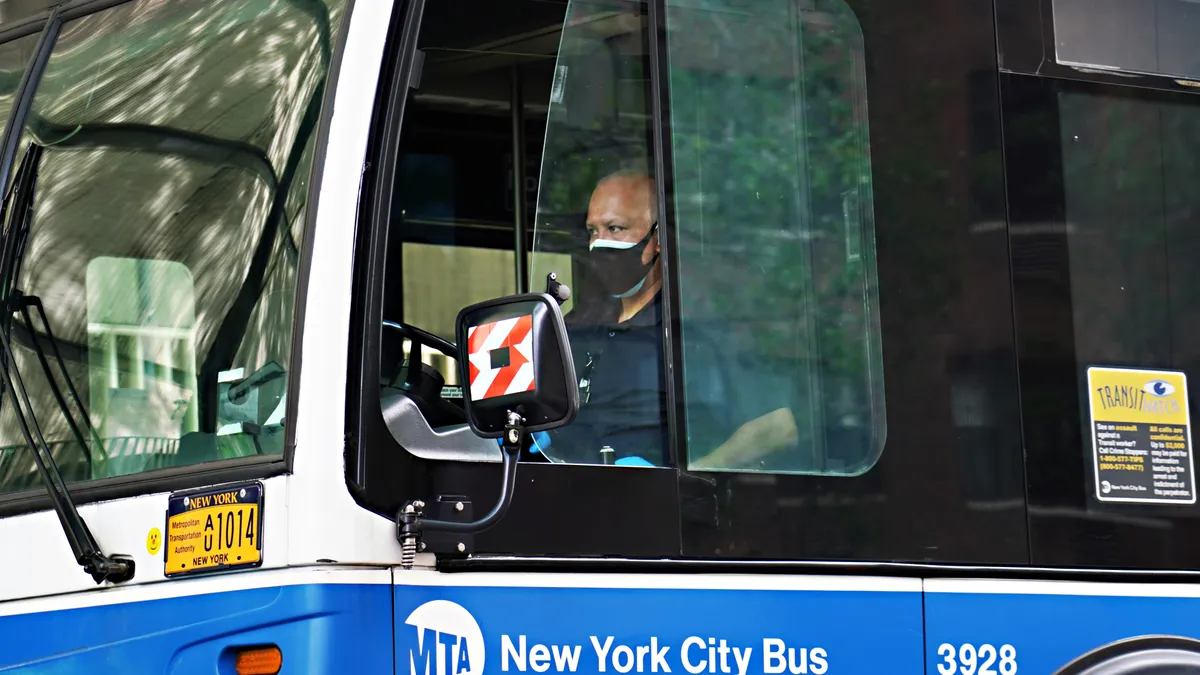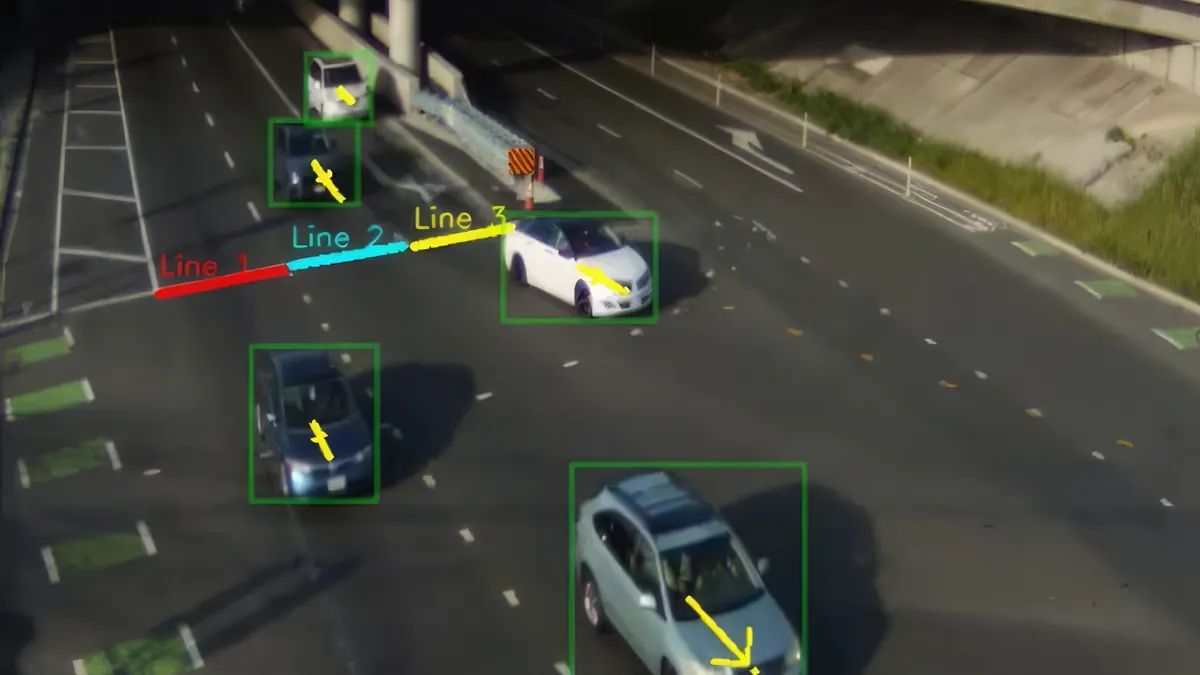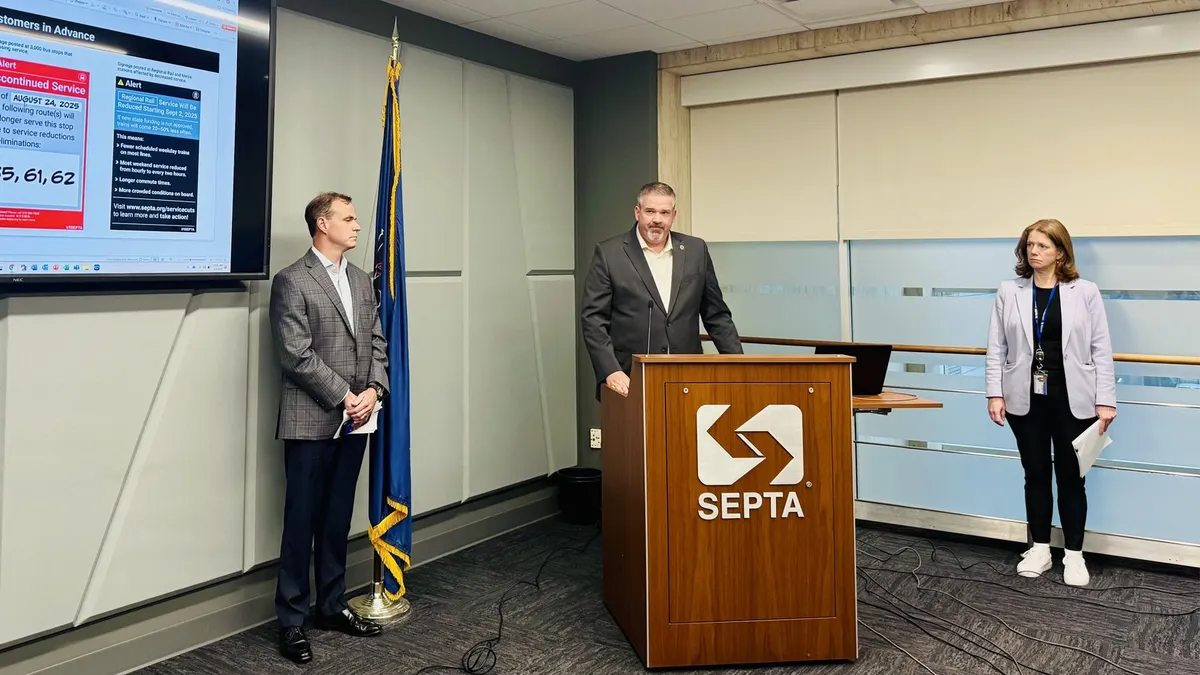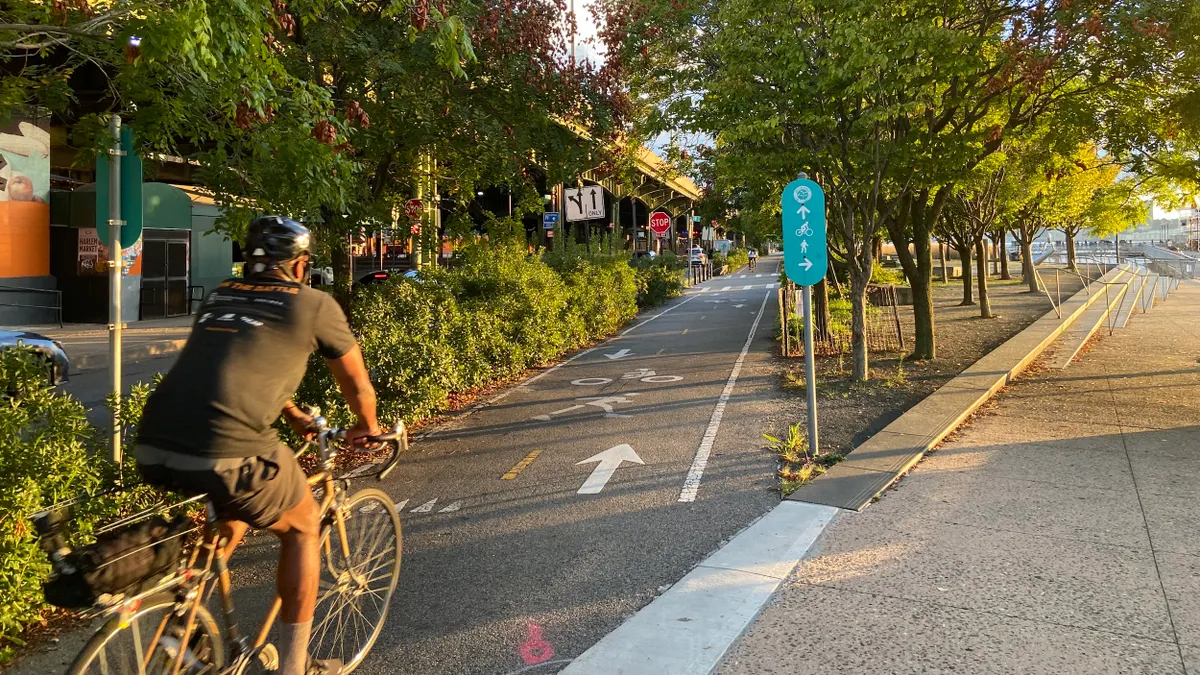Transit agencies across the country are struggling to hire the bus operators needed to fill their service schedules. Amid strong competition for workers throughout the economy, being a bus driver is no longer considered the “pathway into the middle class” that it once was, said Chris Van Eyken, program manager at TransitCenter, a transit advocacy foundation.
More than 90% of the 117 public transit agencies that responded to an American Public Transportation Association survey in March said they are having difficulty hiring new employees, with bus operator being the most difficult position to fill. As a result, 71% of agencies have either had to cut service or postpone adding service.
Low pay was cited as the top concern by bus drivers in a job satisfaction survey conducted by the Los Angeles County Metropolitan Transportation Authority earlier this year. Only about one-third said they would recommend the job to family and friends, and just over 40% saw themselves still working as an operator in five years.
As of July, starting salaries for bus drivers at agencies in the seven highest ridership regions, which include some of the most expensive cities to live in the country, ranged from $19.55 to $29.61 per hour, according to a recently published TransitCenter report.
“It’s very hard on you mentally when you are being threatened.”

Chris Van Eyken
Program Manager, TransitCenter
But the next-highest concern among LA Metro’s drivers, according to the job satisfaction survey, was “safety from passenger confrontation.” The recent surge in transit crime has frequently targeted transit workers. In New York City, 75% of all transit worker assaults involved the harrassment of bus drivers.
According to the TransitCenter report, assaults on bus operators increased fourfold from 2009 to 2020.
A document published this year by the Amalgamated Transit Union described drivers getting punched, kicked, spat on, or having hot coffee or urine thrown in their faces. Others are stabbed or strangled from behind.
“It’s very hard on you mentally when you are being threatened or understand that you could be assaulted while you're driving a vehicle,” Van Eyken said.
Workplace issues, such as split shifts, inflexible schedules and substandard facilities like break rooms also lessen the appeal of the job. “It's a multitude of things that have created a really poor job quality for a lot of operators,” explained Van Eyken.
Fewer frontline workers now have the opportunity to move into management roles. “It used to be an expectation that an ambitious bus driver could move up into the ranks of management if they wanted to,” Van Eyken said. “You could become a supervisor or a scheduler or a planner. Now, all of us have Bachelor's or Masters [degrees] when we're working in those roles.”
TransitCenter reported that 66% of managerial and leadership positions are held by White people, while frontline positions “account for a significant share of agencies’ Black and brown employees.”
To attract more candidates to fill empty bus driver seats, many transit agencies have increased starting wages and offered sign-on or retention bonuses. But in a January interview, Patrick Parents Jr., who drove a bus for the Maryland Transit Administration for 10 years and is now a consultant in transit operator recruitment, called hiring bonuses “one of the more insulting aspects of our industry.” They come with strings attached, he said, like requiring perfect attendance and accident-free performance, and payouts delayed a year or more after hiring.
Too often, transit agencies ignore using major job boards and social media when posting openings. Faster response times to applicants are important, as job-seekers will likely apply to more than one organization. Agencies could also help applicants without a commercial driver’s license get trained to obtain one.
In New York City and Los Angeles, transit agencies are partnering with local governments and other organizations to educate high school students for careers in transportation. New York City’s Transit Tech school, which has a longstanding relationship with the Metropolitan Transportation Authority, provides career and technical education and prepares students for employment with the New York City Transit Authority, Long Island Railroad, Amtrak and other companies.
The SEED School of Los Angeles County, in partnership with LA Metro, welcomed its first group of ninth grade students in August. The college-prep boarding school aims to prepare students for careers in transportation infrastructure, STEM and the humanities.
States and the federal government have roles to play in addressing the driver shortage. On the federal level, Van Eyken said TransitCenter wants the U.S. Department of Transportation to treat the bus operator shortage as a crisis. TransitCenter urges Transportation Secretary Pete Buttigieg to get directly involved, speak about it during public and media appearances and form an interagency task force to tackle the problem.
States can expedite the process for obtaining a CDL and use second chance programs to widen the applicant pool, the TransitCenter report stated. The New Orleans Regional Transit Authority is providing on-the-job training for non-violent individuals who complete the requirements of the Louisiana State Penitentiary’s automotive repair programs. The program, announced last year, will hire bus mechanics and body repair technician trainees for a six-month trial period, after which successful participants can become permanent employees with the RTA.
Ultimately, said Van Eyken, states need to provide more funding for transit. The TransitCenter report urged states “to ensure that their transit agencies are well funded and able to provide their employees with quality jobs,” and “provide financial incentives to cities to build bus improvement projects.”



















